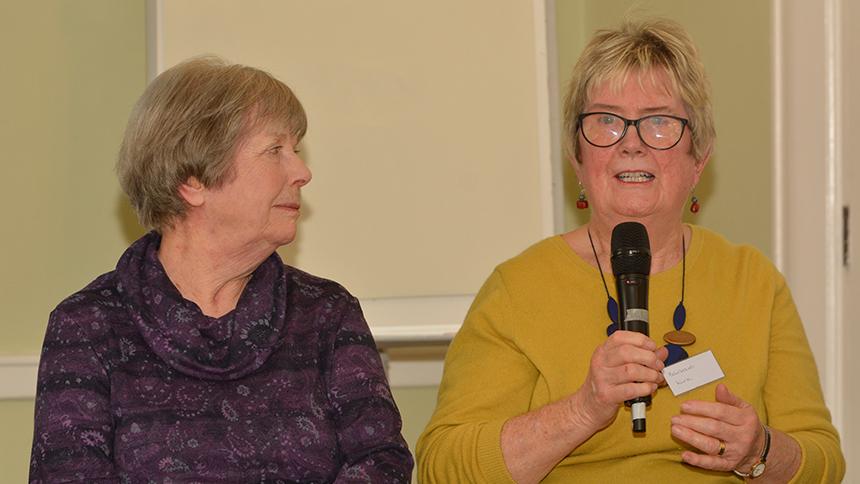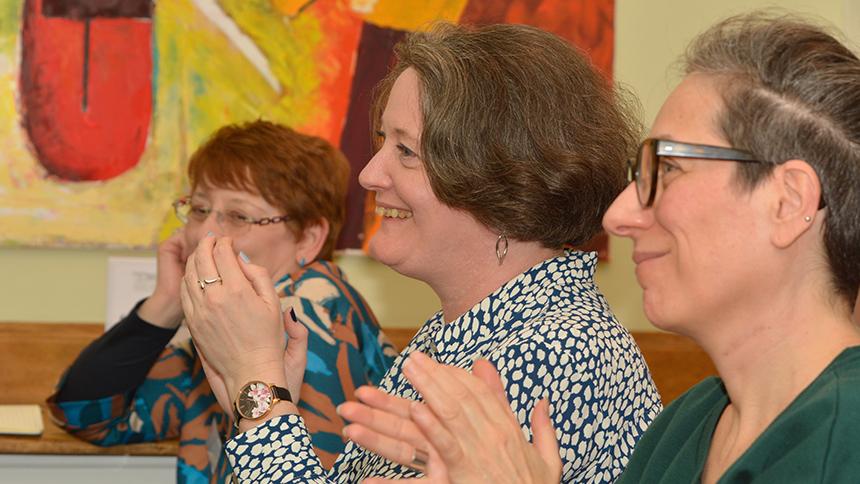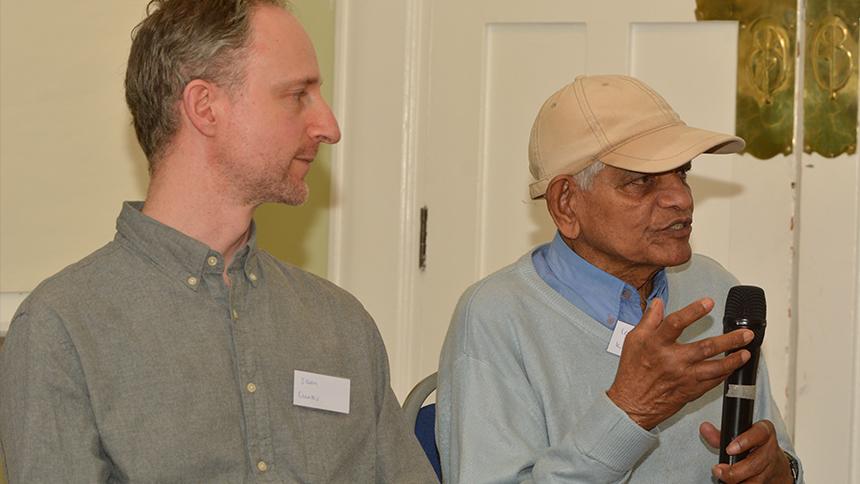A panel of people affected by dementia help to make London dementia friendly
A panel of people affected by dementia has been helping to make London more dementia friendly. Panel members and others gathered together earlier this year to look back on their achievements.
Since 2018, Alzheimer’s Society has worked with the Mayor of London on Dementia Friendly London.
The aim is to make London the world’s first dementia-friendly capital city.
People with lived experience know the challenges and barriers posed by dementia, so we’ve made sure they’ve been central to this.
This includes through the People’s Panel, which has met regularly to discuss everything from housing and health and social care, to transport and arts and culture.
The Mayor of London’s Health Advisor, Dr Tom Coffey, says, ‘I’m proud that, by working with the People’s Panel, we’ve been able to make a real difference, empowering those with dementia and building a more inclusive London for everyone.’

Movement for change
The People’s Panel, a group of people affected by dementia, worked closely with the Greater London Authority, healthcare professionals, cultural venues and others to help build a movement for change.
The panel came together in February to celebrate its achievements and reflect on what still needs to be done.
Barbara Kirk said, ‘Being on the panel has given me hope for the future.
‘It was helpful for sharing ideas and experiences and feeding these into local and national decision-making.
It took 18 months for my husband to get a diagnosis. Any networking this panel has done to stop people going through what we did is a good thing.
Another panel member, Kate White, cared for her partner who had dementia.
‘I was keen to be involved,’ says Kate. ‘There’s a huge amount of time and money wasted in fragmentation when it comes to health and social care for someone with dementia.
The purpose of a group like us was to tell our stories, but also to hold feet to the fire.
‘No more talking shop, it’s time to put what we’ve learnt into practice!’

Joined-up care
Helen Souris, from the London Dementia Clinical Network, spoke with panel members about improving joined-up care after a diagnosis.
‘We provide leadership and advice to shape dementia services across London and we take any opportunity to hear from people with lived experience,’ Helen says.
The panel told us it takes too long to get a diagnosis and that care is fragmented after a diagnosis.
‘For example, we know that hearing loss is linked to dementia. But when we spoke to services, they weren’t asking patients about hearing.
‘We brought audiologists and memory services together, creating a hearing checklist.’
Helen hopes that the hearing checklist and other examples of good practice can be rolled out across London.
This includes the proposed Universal Care Plan, which makes a patient’s notes accessible online across all the health services they use.
Diagnosis barriers
Improving dementia diagnosis rates is crucial for a dementia-friendly London.
We worked with Humankind Research – an ethical research agency – to identify barriers faced by Black African, Caribbean, Black British and Arab communities when seeking a diagnosis.
This found that Black and Arab communities were less likely to seek healthcare for dementia concerns.
‘For some older Black women that we spoke to, their experiences in healthcare left them feeling very unwelcome,’ says Joanne Oguntimehin at Humankind Research.
It was difficult for them to look at their negative experiences and not link this back to their race and ethnicity directly.
Belief that dementia symptoms were a natural part of aging – combined with stigma – meant these were not spoken about, reducing the urgency to seek a diagnosis.
This research can now be used to inform better dementia support for Black and Arab communities.
Dementia-friendly venues
Making libraries, museums, theatres and other venues dementia friendly was another key goal.
The People’s Panel influenced an accreditation scheme created by cultural venues and the Greater London Authority.
Over 100 large and small venues across London have become more inclusive for people with dementia through the Dementia Friendly Venues Charter.
Inclusive performances, clear signage, quiet zones and staff training can all help make a venue dementia friendly.

Out and about
Resonate Arts is a west London charity that offers free creative activities for people affected by dementia.
In partnership with the People’s Panel, they invited people affected by dementia to be ‘mystery shoppers’ at various London venues.
This helped to shape recommendations for how they could improve.
Lal Kissoon visited one museum as a mystery shopper. ‘When I first went to the museum, it’s a huge building,’ he says.
‘I entered from the front which only had steps – people need to be told about the entrance with the elevator!
‘Trying to find something there is very difficult, so I had to make enquiries with the staff.
I was looking at ancient artefacts and it showed how life has improved. It’s important to preserve this for future generations so they can see too.
Donate
Your donations help us to continue working in partnerships such as Dementia Friendly London.


Sue Bye
says